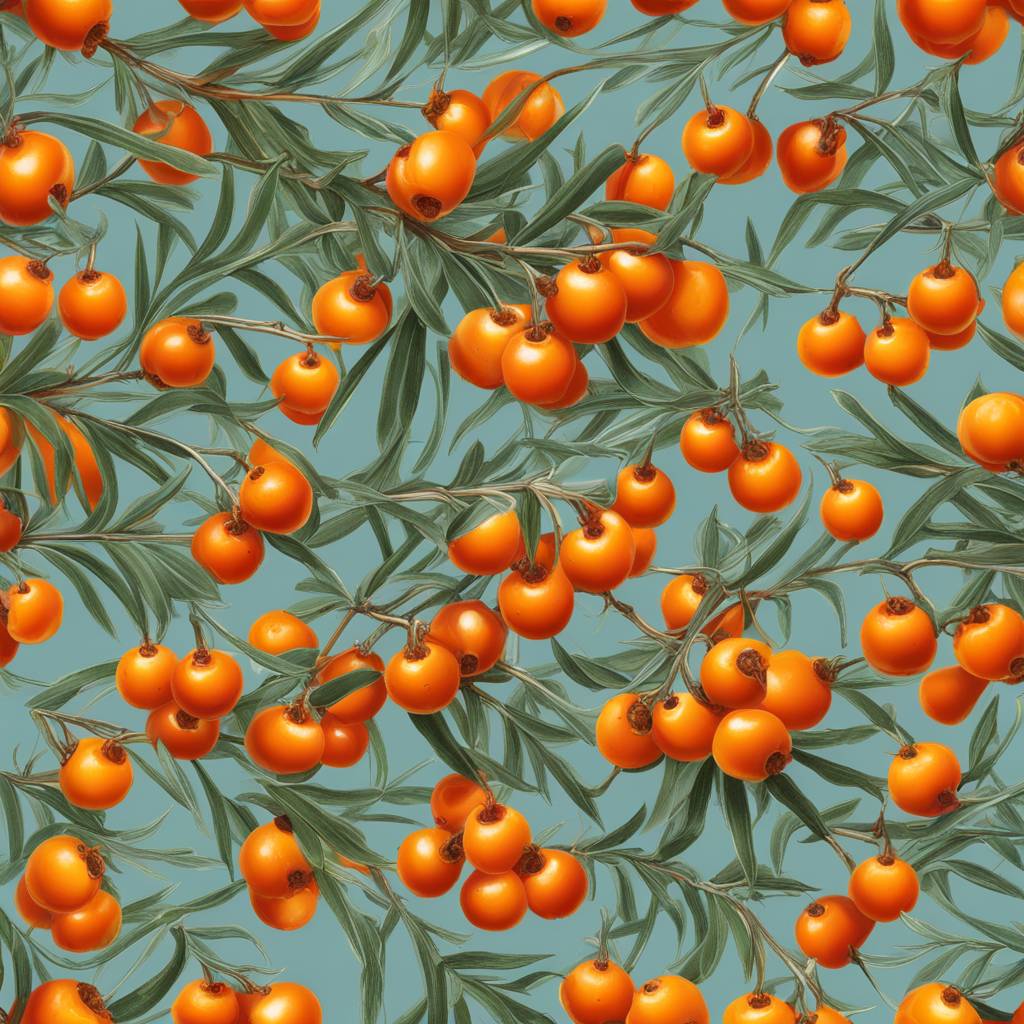A new study has discovered that sea buckthorn berries, known for their medicinal properties for centuries, contain powerful antioxidants. These berries have shown promising potential for treating diabetes and obesity during in vitro tests. The harsh coastal environments in which sea buckthorn berries grow may play a role in their ability to produce more antioxidants in response to environmental stressors. This finding adds sea buckthorn berries to the growing list of potent nutraceuticals whose medicinal value is being confirmed by modern science. The study, conducted at Memorial University in Newfoundland, Canada, highlights the unique nutritional characteristics of sea buckthorn berries that could have significant health benefits.
Sea buckthorn berries have been recognized for their health properties in various parts of the world, including Asia and Europe. The antioxidants present in sea buckthorn berries are effective in preventing damage to the body’s cells caused by free radicals. In addition to their antioxidant properties, the plant’s leaves and berries have been used for nutritional support and pharmaceutical purposes. The oil extracted from the plant is a rich source of omega-3 and omega-6 fatty acids, polyphenols, and vitamins E, B, and A. Canadian governmental agencies introduced sea buckthorn to the country in the early 2000s based on preliminary research findings suggesting its vast commercial potential.
Dr. Menka Gupta, a functional medicine doctor, highlighted the traditional uses of sea buckthorn berries for digestive health, cardiovascular health, skin diseases, ulcers, and more. Michelle Routhenstein, a registered dietitian, emphasized the potential health benefits of the vitamins, flavonoids, carotenoids, and phenolic compounds found in sea buckthorn. These naturally occurring compounds may be responsible for the positive effects on diabetes cells by reducing oxidative damage and inflammation, improving insulin sensitivity, and glucose metabolism. In combating obesity, the antioxidants and dietary fiber in sea buckthorn may help alleviate oxidative stress and inflammation, supporting metabolic health and weight management efforts.
Plants with medicinal properties have a long history of use in traditional medicine, with modern scientific studies now confirming their benefits. Dr. Gupta listed various common plant-based nutraceuticals that provide health benefits through antioxidant properties, anti-inflammatory effects, and gut health improvements. Other modern nutraceuticals mentioned by experts include resveratrol, astaxanthin, lignans, and plant sterols and stanols, each offering unique health benefits such as antioxidant protection, anti-inflammatory effects, and heart health support. Sea buckthorn, a hardy shrub that thrives along coastal regions, is believed to have higher antioxidant levels due to the challenging conditions under which it grows, including high-salt soil, nutrient-poor content, and variable moisture levels.
Coastal plants like sea buckthorn, cranberries, rosemary, and lavender are known for their antioxidant properties and adaptability to harsh environments. Other plants such as Hibiscus tiliaceus, Syzigium corymbosa, Calophyllum inophyllum, and Colubrina asiatica have also been found to provide antioxidant benefits. The challenging conditions under which coastal plants grow, such as high-salt soils and variable moisture, may lead to higher levels of antioxidant production as an adaptation response. Sea buckthorn has also been observed growing in inhospitable environments like Ladakh, India, known for its extreme temperatures and drought conditions. Coastal climates are believed to have a unique ability to produce powerful antioxidants due to their challenging growth conditions, ultimately benefiting human health.


